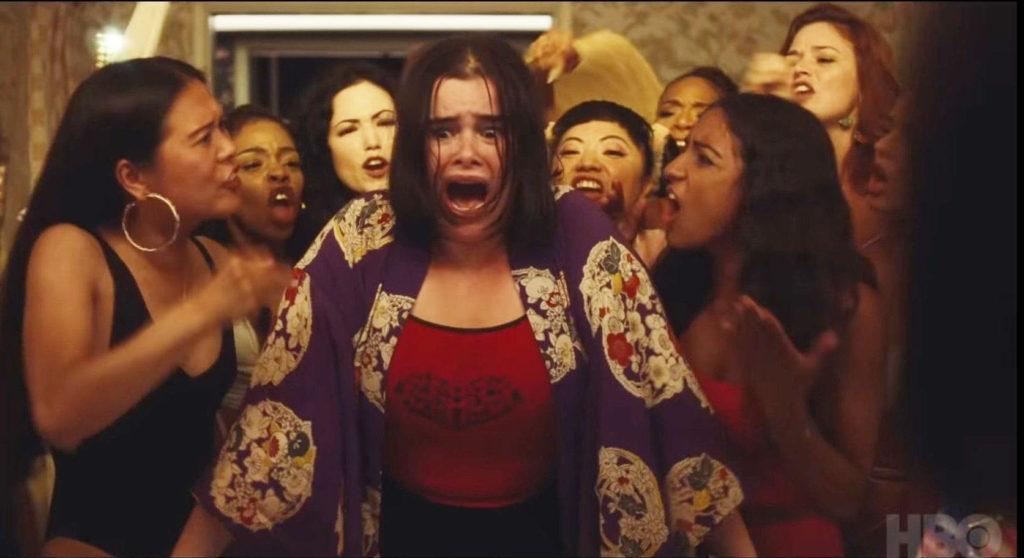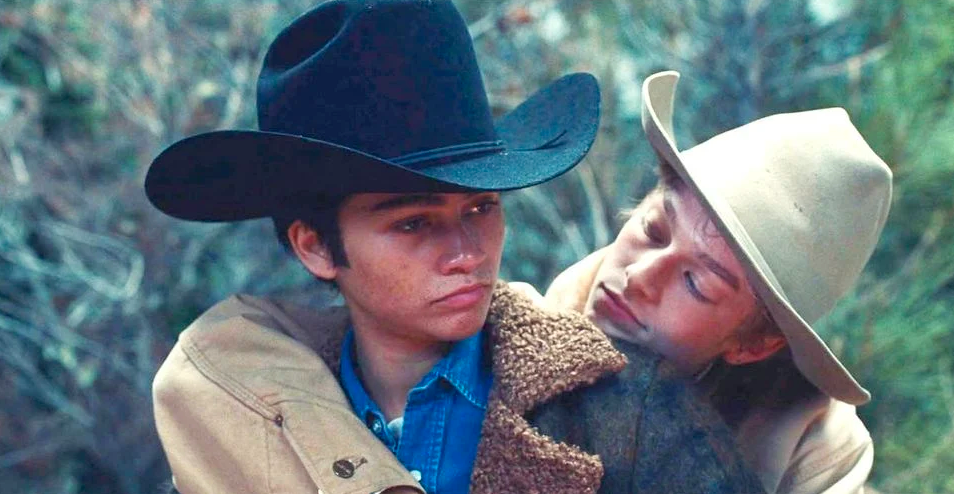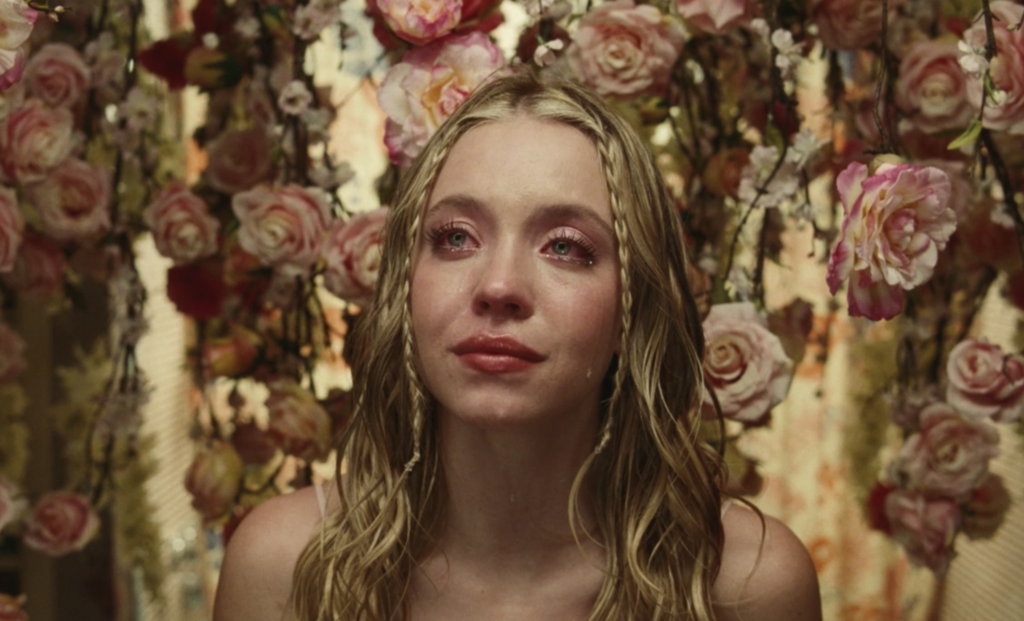If you ever spend Sunday nights on Twitter, you will have quickly learned that HBO viewers moved on from a show about the worst adults you’ll ever meet to a show about the worst teenagers you’ll never meet. The bumbling nepotists of “Succession” have been overshadowed by the bedazzled mess that is “Euphoria,” and fans and haters alike have made it everyone’s problem.
“Euphoria,” written and directed by Sam Levinson, has ratcheted up the stakes for season two. The series follows a group of teenagers abusing drugs, people, and eyeshadow in equal measure. Like most HBO shows, violence, profanity and nudity abound. The ensemble cast, led by Zendaya as Rue, spends more time inebriated than in class. Despite the chaos, its lush, hyper-stylized cinematography, soundtrack and design have struck an intense emotional chord with Gen Z.
While the first season was certainly talked about, the show has now become appointment television, opening a screenshot floodgate on social media each Sunday at 8 p.m. Central Time that flows in full force the whole week. The chatter is not all memes, though, and each episode often spawns multiple debates about the ethics of representing the characters’ bad behaviors. As Ms. Taylor Swift says, “I think I’ve seen this film before, and I didn’t like how the ending romanticized…” — sorry, wait, is that how it goes?
The word “romanticization” dominates the “Euphoria” discourse, often joined in conversation by its close friends objectification, normalization and, of course, intoxication. A recent negative Vogue review of “Euphoria,” written by a fellow card-carrying Gen Z member in their first year at Yale, describes the show as “a vehicle to further romanticize our self-destructiveness,” criticizing its heavy reliance on aesthetics to depict the darkest manifestations of teen angst.

What do we mean, exactly, when we say that a work of art romanticizes? Presumably, it somehow makes the specific subject of a work more appealing. It takes a direct object — an institution, a drug, an age gap — and concentrates the magical forces of art to thrust it onto a gleaming pedestal. But from this already murky baseline definition (which certainly has its place in criticism), “romanticize” has taken on a colloquial meaning that drives the discussion of art like “Euphoria” to places I find as nonproductive as they are annoying
Through some amateur etymology, I’ve traced the term’s current usage to none other than Standard TikTok English, specifically one video.
“You have to start romanticizing your life,” demands an off-screen voice, likely belonging to the woman a drone shot spirals down to focus on. The beach she’s at looks crowded. There’s no ocean in sight. The camera captures just a tight strip of sand covered with patterned towels and filter-generated twinkles of light. The upload date is drenched in irony, equal parts maddening and excruciating: May 26th, 2020. Over descending harp arpeggios, she continues: “You have to start thinking of yourself as the main character.”
Romanticizing is now something that individual people can do. (There’s another shorthand definition of “romanticize” that I won’t get into here, which is “to put something that I don’t like in a work of art.”) Not to be confused with romance, romanticizing is a mentality to be embraced, a mantra to be repeated. This is the world of “Euphoria,” where characters try to pose and glitter away their problems, where they would rather stare intently out a dramatically lit window than at their demons. And who wouldn’t? It’s all very enticing.
Hence, the criticism, that through the aestheticization of its characters’ tribulations, “Euphoria” downplays their brutality. As the Vogue review puts it, “it isn’t attempting to do anything at all. And by simply showing what it shows, how it shows it, it inadvertently endorses it anyway.”
But what “Euphoria” shows is inseparable from how it shows it. The form is the content. The demanding camera of “Euphoria,” while dependent on its perception as a mirror, is a mirror made more accurate through its enhancement of reality. No high schoolers so widely wear that bold of makeup, of course. No one gives a little kid a face tattoo. This is the way many teens now think of themselves, though, enabled by a girl preaching from a beach towel. They are already romanticizing. Why would they need an hour-long A24-produced TikTok to do it for them?
I don’t mean to imply that it is silly to romanticize, either. How else could we cope with, well, you know. People cover up the ugly things in their lives with beauty all the time. They fail. “Euphoria” depicts the desperation that drives people, who just so happen to be young, to slather the bleakest moments with romance. By elevating the style — a process skeptics reduce to romanticizing — the veneer is made more obvious and its shedding becomes the subject.
Many pretty things are fake. If a face is on a screen, you can bet so safely that it’s filtered or Photoshopped that it feels cliche to even remind you of it. The idea is so baseline at this point that when “Euphoria” itself tries to confront it too directly — with a nightmare sequence of Instagram idols’ toxic positivity made physical — it feels hollow and heavy-handed thematically. Visually, though, it’s standard “Euphoria.”
The show branches further from realism than just neon-smeared faces. In the first season, climactic moments often embraced the surreal, like when Rue leaves her house in the finale to be met with a music video-style mob lifting her through a crowd. Every episode of this season has featured many such scenes, like the aforementioned influencer onslaught, a behind-the-scenes news segment on a play one character is writing and a surreal montage recreating scenes from romance films. There’s never a hint of realism to be found, and yet viewers insist on judging the characters’ misdeeds as if they themselves are the friends being cheated on.

“Euphoria” does, at times, take itself too seriously. If anything is overly romanticized, it would be this season’s episode titles. To expend 23 syllables telling you just a couple, names like “Trying to Get to Heaven Before They Close the Door” and “Those Who Cannot See, Think of Those Who Can” strive to be profound but come across as pretentious, verbose and discordant with the show’s actual tone, which is more Lorde, less Sufjan Stevens.
The scenes themselves, while always stunningly shot and acted, can often feel weakly strung together, though it never bothers me or gets in the way. At their most cohesive, we are guided from plotline to plotline by an omniscient narrator version of Rue, distractingly wiser than the protagonist we love to love and hate to hate.
But like its characters any time they’re in a moving car, the romanticizing of “Euphoria” seems to be driving itself to inevitable catastrophe, which might just be the whole point. The facades keep sloughing off.
“I feel like you’ve ruined me forever,” says one character, Maddy, to her abusive ex-boyfriend Nate in episode four. He waits a second to reflect on what she’s said before responding, his eventual reply both a rebuttal and a genuine question.
“Why does it sound so romantic when you say it like that?” he asks.
It doesn’t.
























































